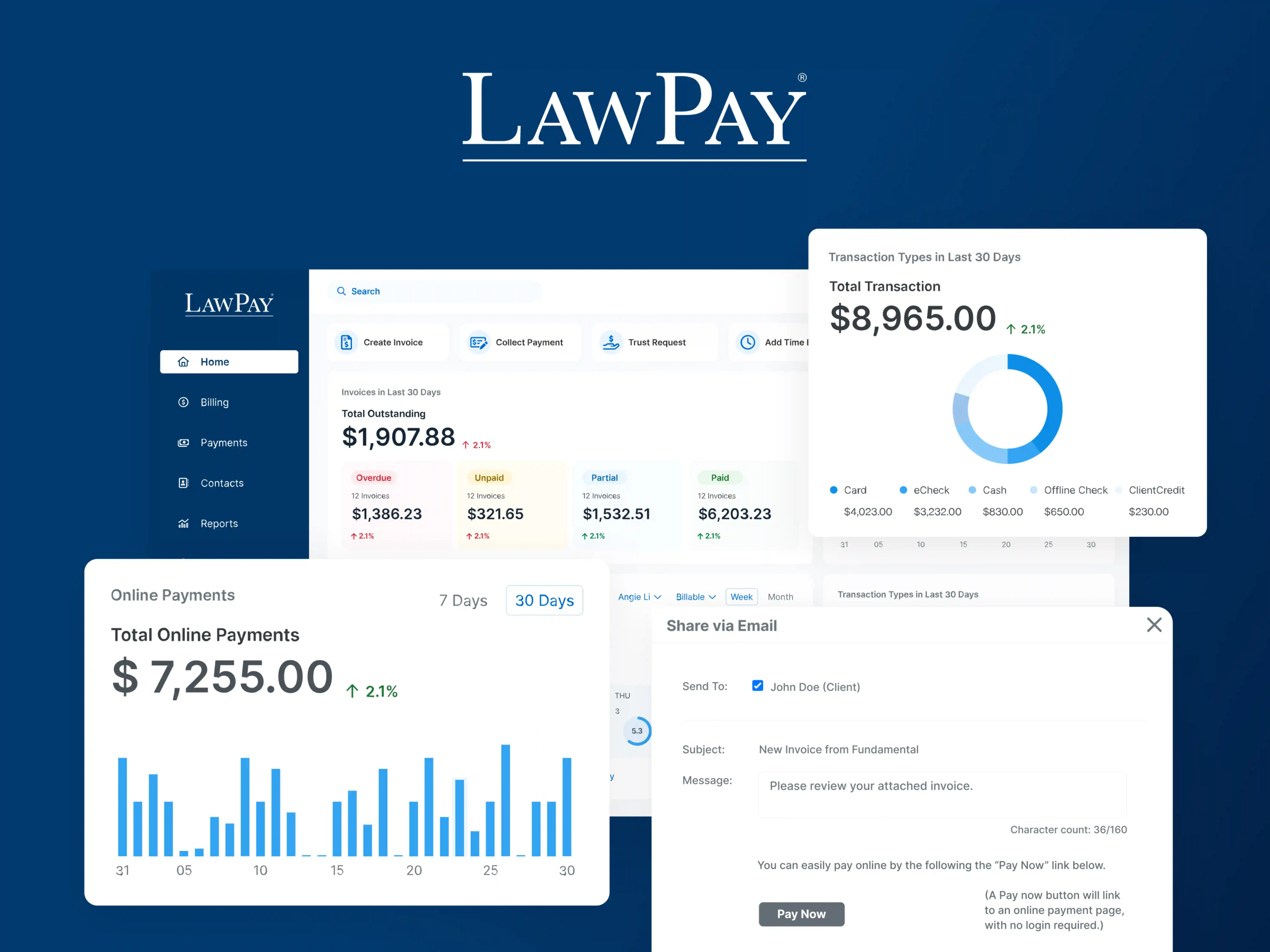Outside of your legal practice there are many variables involved in building a positive reputation that you might not have studied in law school – namely your firm’s collection and billing processes.
Sometimes the best lessons for practicing law can only be learned in the trenches, in the courtroom, and unfortunately on your balance sheet. So, LawPay is here with our payment tip of the month to help you get on track towards more effective collection and billing processes! Let’s get you paid.
Schedule a demo to see what LawPay can offer your firm.
Book Now
Communicate
Asking for payments has become the most agonizing part of the lawyer work cycle. Many clients are often in stressful or emotional situations, which increases the chances of them neglecting key details of your legal service contract. Communication is step one to delivering your legal service the right way.
Before taking on new case work it’s important that your client signs a written fee agreement. This is especially important when the client is a sole individual being charged contingency fees by your firm. The client signature communicates that they understand and accept the terms of your case fees, payment dates and past-due payment fees. This is a primed opportunity to discuss and agree upon client budget and contextually relevant life events that could affect their ability to pay on time. Keep in mind, each state employs their own contractual negotiation rules.
The most integral part of your legal agreement is vetting your potential client in an attempt to gauge their ability to follow through on your agreement. Linda J. Ravdin, a shareholder from Ravin & Wofford, specializes in family law and estate planning. She asks the following questions to weed out the “deadbeat” clients:
Names and addresses of parties.
Parties’ current employment.
Length of the marriage.
Number and ages of minor children or adult children still in school.
Who referred the client?
Do the parties still live in the same house?
Have the parties already discussed separation; are they in agreement to separate, or will the client’s plan come as a complete surprise?
If the parties are already separated, where do the children live?
Ravin states, “Give potentially troublesome clients an opportunity to talk; they often reveal themselves by how they respond to innocuous questions and by volunteering additional facts. Danger signs should go off with clients who do the following.”
As their first question, ask, “How much do you charge?” The client is certainly entitled to this information, but the client who wants to know that before she asks you anything else may be trouble.
Has already switched lawyers several times. Chances are this client has unreasonable expectations and will find fault with your representation as well.
Tells you the lawyer down the street will do the job for $150 per hour when you say you charge $200 per hour. Why didn’t he hire the lawyer down the street?
Insists on telling you her whole story in the initial phone call or insists on getting legal advice before agreeing to an appointment. This person may be looking for something for nothing.
Is switching lawyers, owes the other lawyer money, and does not want to pay. The reluctance to pay may or may not be justified, but it warrants caution.
Acts overly demanding but evinces insufficient willingness to pay for the privilege.
Refuses to answer innocuous questions or demands to know the reason for each question.
When it comes to making judgements about a client’s ability or inability to pay, just remember – where there’s smoke there’s fire. That being said, if you accept credit card payments it is highly recommended that you include “payment guarantee” language in your engagement letters. This language should directly state the client must guarantee any payment paid by their credit card to your firm. In addition, protect your firm from a potential chargeback by requiring clients to specifically initial this clause.
Not only will simple and concise billing procedures make your firm’s business of law more effective, it will make your office procedures leaner. Clear communication with your clients during the new-client phase will set up the appropriate channels for you to follow up on payments.
Schedule a demo to see what LawPay can offer your firm.
Book Now
Want more advice on using effective communication to provide exceptional client service? Read our guide "Lawyer Communication: How to Communicate With Clients", which provides a wealth of fresh communication tactics to help you boost your practice.
About the author

Amy Mann
